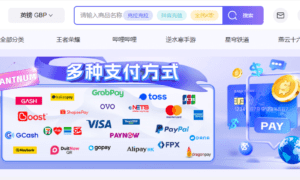A small company gets its 1st foreign job. The deal is sealed, there is excitement and it seems a big move to expansion. Then there is the payment part, though and suddenly life gets complicated. The time that it takes to transfer the funds is too slow, the charges involved are very high and the conversion costs cut into the profits. A simple transaction would be stressful and even costly.
This is the reason that poses a challenge to many small firms in terms of international payments. Compared to the big companies that have the financial departments, small firms usually do not possess enough resources to facilitate the cross-border transaction conveniently. But as the global trade opportunities have been growing, international payments can no longer be considered as something that you can master at your own pace and shall.
Why International Payments are difficult in small businesses
The conventional payment services tend to be against smaller firms. Among the most frequent problems one can mention:
Extensive Transfer Fees: This is where banks demand a high cost each time a transaction takes place, thus cutting down on the profit margins drastically.
Slow Processing: It may take several business days before payments are cleared up thus slowing the shipment and delivery.
Invisible Costs of Converting Currency: The bad terms of exchange make it such that small businesses readily lose money without even knowing about it.
Pre-Funding Costs: Maintaining a foreign account and setting it up are forms of cash that are locked up.
For small businesses trying to grow, these obstacles can be the difference between winning or losing international deals.
How Modern Solutions Simplify the Process
Small businesses are increasingly turning to financial technology platforms that make international payments faster, cheaper, and easier to manage. These solutions remove many of the barriers associated with traditional banking.
Key benefits include:
Instant Settlements: Transfers that once took days can now happen in minutes.
Live Exchange Rates: Transparent currency conversion eliminates hidden costs.
Lower Fees: Reduced transaction charges mean more money stays in the business.
No Pre-Funding Hassles: Payments can be sent directly from existing accounts or wallets.
Why Speed and Cost Matter So Much
Faster payments allow companies to:
- Pay suppliers on time, securing better deals.
- Avoid cash flow bottlenecks caused by long transfer times.
- Strengthen relationships with global clients by ensuring smooth transactions.
Lower fees also mean that small businesses can compete more effectively with larger players, as they aren’t losing significant amounts of money to banking charges.
Security Without Complexity
One major concern for small businesses is payment security. Modern platforms address this by offering encryption, fraud detection, and compliance with international regulations such as SOC2 and PCI DSS. This ensures that funds are protected without adding extra complexity to the process.
A Smarter Way to Pay Globally
With the right approach, small businesses can handle International Payments as easily as domestic ones. Multi-currency support allows them to pay partners in local currencies, making transactions smooth and professional. Integration with accounting tools also helps manage records effortlessly, saving time on manual entries.
Turning Challenges into Opportunities
Small businesses no longer need to feel overwhelmed by global transactions. By adopting better solutions for cross-border payments, they can save time, reduce costs, and focus on growing their business instead of battling with banking inefficiencies.
With faster transfers, transparent fees, and secure processes, small businesses can finally take full advantage of global opportunities without being held back by outdated payment systems.

































